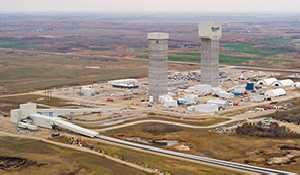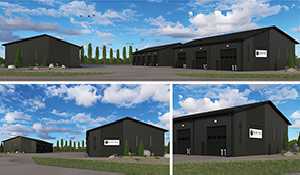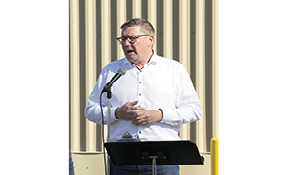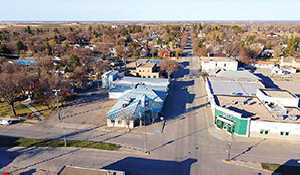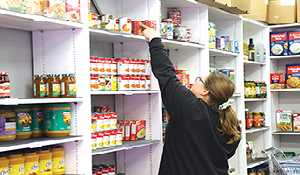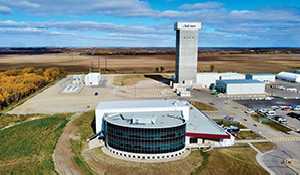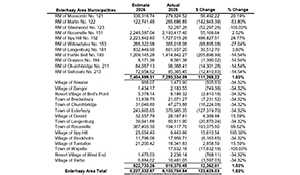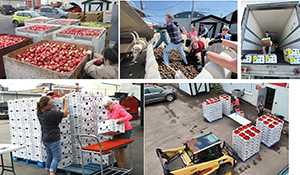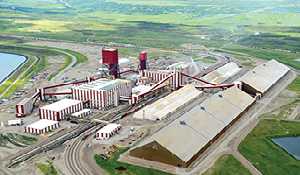Biden revokes Keystone XL Pipeline permit
January 26, 2021, 1:59 pm
Rob Paul, Local Journalism Initiative Reporter
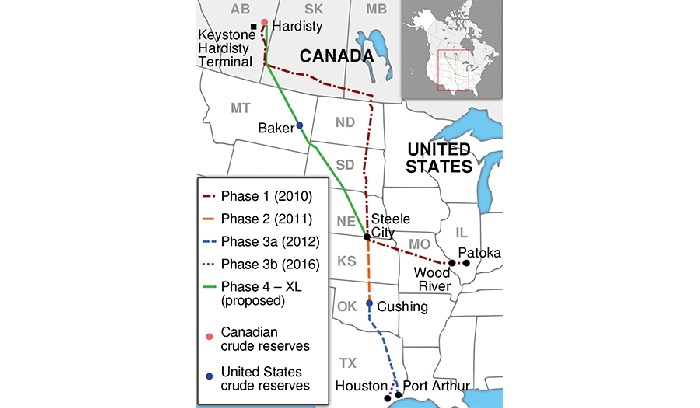

Newly elected U.S. President Joe Biden has caused some to criticize him early on in his tenure. On his first day in office, Biden revoked the permit for the Keystone XL Pipeline.
The Keystone XL Pipeline was expected to create thousands of jobs across the U.S. and Canada—it was phase four in the Keystone Pipeline System and would have run from Hardisty, Alberta through Montana to Steele City, Nebraska.
SARM
The Saskatchewan Association of Rural Municipalities (SARM) says they’re extremely disappointed that the Keystone XL Pipeline project has been suspended, and with the federal government for not pushing hard enough to convince U.S. President Biden of the benefits of the Keystone XL. This is yet another blow to the Canadian economy and will adversely affect the Saskatchewan economy and rural municipalities in the province, stated SARM.
The project was expected to create over 1,000 short-term jobs during construction and generate an estimated $2.97 million in additional annual property taxes to municipalities along the right-of-way in Saskatchewan while also reducing the negative impacts of transporting heavy oil on highways and railways, allowing for more effective movement for producers to move their product to market, according to SARM.
“The Keystone XL Pipeline was an opportunity for a long-term stabilized energy supply from Canada to the United States,” said SARM President Ray Orb. “An economic recovery requires support for projects like Keystone that advance the economic competitiveness of our province and provide economic stimulus for rural municipalities. SARM champions the value of rural Saskatchewan—our municipalities are home to the oil and gas industries that feed the world and fuel the economy.”
They expected this decision to come, but that doesn’t take away from how devastating it will be for Canadians, says Orb.
“We’re really disappointed that President Joe Biden has killed the permit for this project,” he said. “It’s a good project and a big project for Saskatchewan and Alberta and it’s probably good for the United States too. At the same time, we were watching this during the U.S. presidential campaign so we knew that Joe Biden was using this in his election platform, so I guess we shouldn’t have been surprised by what happened, but we’re still disappointed.”
Orb thinks the money and jobs generated from a project like the Keystone XL Pipeline could have been the perfect opportunity for an injection into the economy while the country recovers from the Covid-19 pandemic.
“For Saskatchewan, we know just in the taxation alone, the loss will be in the neighbourhood of about $3 million for our rural municipalities that are impacted—like where the pipeline actually goes through,” he said. “If that pipeline doesn’t produce, well then there’s not going to be any taxation for the oil.
“We estimated there are about 1,000 short-term jobs that would have been created by the pipeline, that’s a pretty good thing for economic recovery in a province like Saskatchewan during this Covid crisis. I’m not going to speak on behalf of Alberta, but I know Premier Kenney has big concerns about the hit because the Alberta government put up a loan guarantee in the billions and that’s going to be a financial hit to their province.”
Not only does losing the pipeline take away jobs says Orb, but it’s about transporting oil safely across North America rather than relying on using the railways.
“The safety of transporting oil has been an argument of ours all along,” he said. “We supported Energy East when there was a push to have a pipeline in Eastern Canada that connected to the west and we were pushing for Trans Mountain to go ahead to be completed. In the meantime of course, oil has to be moved because there’s a lot of demand for Canadian oil, so it goes by rail or by truck in some cases. That takes away rail space for grain, mining products, and things like that, so that has a detrimental effect too in the sense that there’s more competition for rail space. We can’t see anything good at all coming out of this decision.”
Dr. Robert Kitchen
Dr. Robert Kitchen is the MP for Souris-Moose Mountain, an area that will be impacted by the decision on the Keystone XL Pipeline and he says it will affect not just Alberta and Saskatchewan, but all of Canada as the country tries to rebound from the Covid-19 pandemic.
“This isn’t great, not only for Moosomin, but throughout this whole province and all of Canada,” he said. “Part of me when Biden won was thinking what will he do with this and where are we at? The impression was given that he would look at things, but for him to do it on the first day was devastating. It’s going to have a big impact on Canadians, ultimately we need to get people back to work in every part of Canada and in every sector and we need to do it as quickly as possible. This loss is an important factor because it makes it a lot harder.”
As Covid-19 continues to hurt the Canadian economy, Kitchen was hopeful the pipeline would be able to play an important role in the recovery.
“The jobs are very important right now,” he said. “When you look at this with the slowdown we’ve had with Covid and in the oil and gas industry having those workers doing those jobs and out there making a living with that money coming to them and to their families and helping them survive through these times, then getting out into the community to spend that money locally, it trickles down to small local businesses and their families. It’s going to have a huge impact along those lines.”
Another negative factor with the pipeline that Kitchen points to is that without it there will continue to be oil imported from countries that don’t follow the same standards in terms of human and environmental rights.
“It’s important to make sure people understand the impact,” he said. “A lot of people just assume it’s the pipeline, it’s building that pipeline—my understanding is they’ve actually built the piece across the border in Val Marie—and building it throughout Alberta. They’ve been working on that construction and I believe they were supposed to start building into the southwest corner of Saskatchewan.
“Really it’s the trickle down effect that this would have, really it’s about the price of oil and moving Canadian oil. Pipelines are still the safest way to move oil and ultimately the United States still imports a significant amount of foreign oil and a portion of that is Canadian oil, but a lot of it is from Saudi Arabia, Venezuela, and other countries that don’t have human rights and don’t have the environmental standards that we have.
“It’s going to have a huge impact on that and ultimately it will trickle down into Saskatchewan and even into Newfoundland where the oil is being produced because there are going to be thousands of Canadians that will lose jobs because of this as we move forward.”
At the end of the day, Kitchen believes this comes down to a blatant disconnect between federal government and the working class. He says Prime Minister Justin Trudeau’s government needs to focus on what is best for the people of Canada.
“The disconnect starts right with our prime minister,” he said. “There’s a huge disconnect with our prime minister in understanding the value and the need for our natural resources that we have and that we create and export out of this country.
“The prime minister needs to stand up for these Canadian industries, he needs to stand up and talk about Keystone XL—he’s supposed to talk to Biden today (January 22) and he needs to talk about the impact of this and reinforce its importance because it’s not only going to effect American’s, but it’s going to have a huge impact on Canada.
“That disconnect starts right at the top with our prime minister and he needs to come up with meaningful plans to help the struggling Canadian oil and gas workers get back to work.”

















